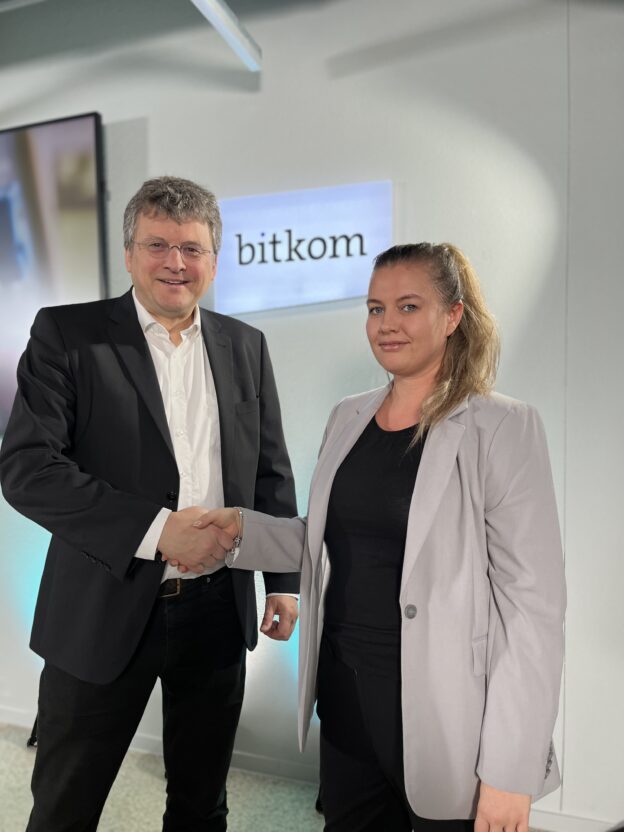
Bitkom, OPC Foundation partner to establish interoperable interfaces for Industry 4.0
April 18, 2023
By Manufacturing AUTOMATION
 Stefan Hoppe from OPC Foundation and Angelina Marko from Bitkom e.V.
Stefan Hoppe from OPC Foundation and Angelina Marko from Bitkom e.V. Bitkom e.V. and the OPC Foundation announced a collaboration at Hannover Messe 2023. Together, they want to contribute to the establishment and implementation of interoperable interfaces in the context of Industry 4.0 in a constructive exchange of views.
“Interoperability is important to ensure seamless collaboration between different systems. The OPC Foundation manages a global standard for secure industrial interoperability for information modelling and data exchange in the context of industry that scales from OT to the IT world. As part of the collaboration with Bitkom, we want to ensure that industrial data aspects can be modelled quickly and accurately, taking into account all the needs of the IT world,” said Stefan Hoppe, president of the OPC Foundation.
The foundation explained in a press statement that the overall goal of the collaboration is to formulate requirements for interoperability with the digital economy to jointly promote harmonization efforts for machine and plant engineering.
“Lack of interoperability is a key barrier when exchanging data and information between different industrial platforms. OPC UA is an open and vendor-independent standard for the interoperability of systems and devices in industrial and automation technology. Especially in the context of data sharing and thus of data ecosystems, OPC UA can contribute to a uniform standard for the transmission of data between different systems in the context of Industry 4.0. We are therefore very pleased that we are now entering into a direct exchange with the OPC Foundation through the MoU,” says Susanne Dehmel, member of the Bitkom management board.
Bitkom e.V. and the OPC Foundation will work together on the following topics:
- Promotion of interoperability and other elements
- Discussion of interoperability requirements together
- Derivation of actual interoperability and standardization needs based on specific use cases or business models
- Input on standardization requirements
- Promotion of security and trustworthiness
- Understanding aspects of open source and the relation to reference implementations
- Marketing activities to communicate the collaboration
Advertisement
- Jeff Burnstein, president of A3, shares top automation trends for 2023
- Canada officially named partner country for Hannover Messe 2025